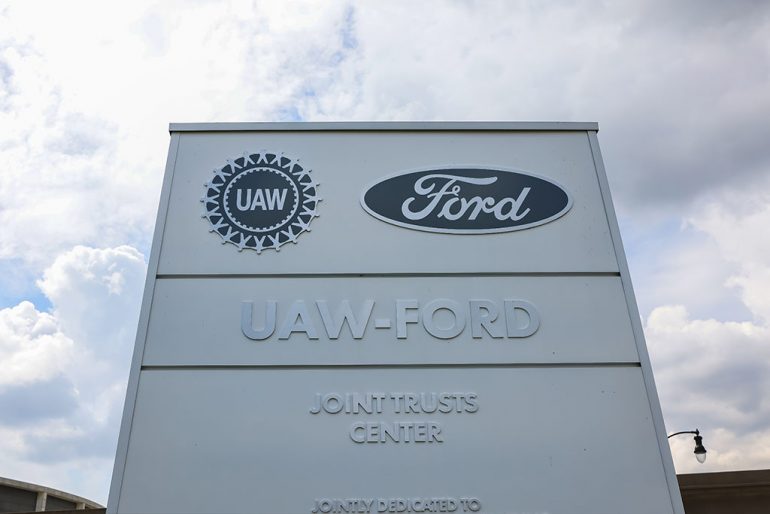
The United Auto Workers (UAW) union is set to escalate its strike actions, affecting both General Motors (GM) and Ford plants, while Chrysler parent company Stellantis narrowly avoids a work stoppage due to last-minute concessions. The ongoing strike, the first-ever simultaneous action against the Detroit Three automakers, has entered its third week and now includes Ford’s Chicago assembly plant and GM’s Lansing, Michigan, assembly plant, involving approximately 7,000 workers.
This development brings the total number of UAW members on strike to 25,000, which represents roughly 17% of the union’s 146,000 members across the three major automakers. Notably, the strike will spare Stellantis from further disruption after the company made significant changes to its contract proposal shortly before the union president, Shawn Fain, was due to address its members.
In his video address on Friday morning, Fain emphasized the lack of meaningful progress in negotiations with Ford and GM, leading to the decision to expand the strikes. While Ford and Stellantis initially did not comment on the situation, GM stated that it had not received a comprehensive counteroffer from the UAW leadership to its latest proposal.
Interestingly, there had been initial plans to announce a strike at Stellantis as well. However, last-minute negotiations led to significant changes in the contract proposal, averting a strike at their facilities.
The UAW’s strike is focused on demanding higher wages, improved benefits, and the elimination of a tiered wage system that pays newer workers significantly less. Automakers argue that meeting these demands would negatively impact their profits, especially as they compete with nonunion manufacturers like Tesla.
This strike comes at a time when the U.S. has witnessed increased union activism in 2023, with a substantial number of workers participating in work stoppages. While negotiations are ongoing at all three automakers, there remains a significant gap between the union’s demands and the companies’ offers. Fain and the UAW are holding firm to their demand for a 40% pay increase over a four-year contract, while the companies have countered with approximately 20%.
The strike’s impact on the automakers’ profits has been relatively limited compared to the financial repercussions of halting production lines for their lucrative truck models. Nevertheless, the UAW’s strategic approach appears to be causing targeted disruptions without inflicting maximum pain.
As negotiations continue and the strike persists, the automotive industry and its workers remain in a tense standoff, with both sides striving to secure their respective interests in the face of corporate profits and worker demands.

Mike Floyd is a finance executive by trade and a car enthusiast at heart. As a CFO with a keen eye for detail and strategy, Mike brings his analytical mindset to the automotive world, uncovering fresh insights and unique perspectives that go beyond the surface. His passion for cars—especially his favorite, the Porsche 911, fuels his contributions to Automotive Addicts, where he blends a love for performance and design with his professional precision. Whether he’s breaking down industry trends or spotlighting emerging innovations, Mike helps keep the site both sharp and forward-thinking.